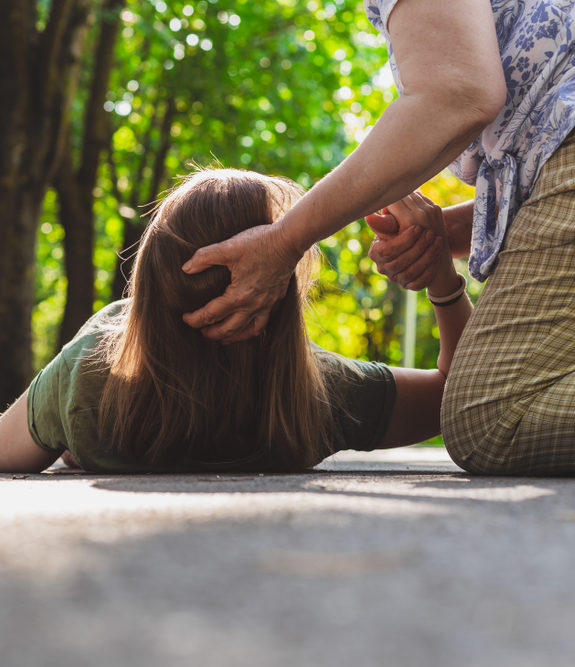Types of Seizures
Focal seizures (involves one area of the brain)
-
- with no loss of consciousness – altered emotions or sensations; spontaneous sensory symptoms including tingling, dizziness, and flashing lights; involuntary jerking of a body.
- with impaired awareness – blanked stares; change in awareness; repetitive movements.
Generalized seizures (involves all areas of the brain)
- Absence seizures (petit mal) – often occur in children and are characterized by brief periods of staring spells and/or subtle body movements.
- Tonic seizures – stiffening of the back, arm, and leg muscles, resulting in falls.
-
- Atonic seizures – loss of muscle control, resulting in sudden collapse.
- Clonic seizures – repeated, rhythmic jerking muscle movements that often affect the neck, face, and arms.
- Myoclonic seizures – sudden, brief jerks/twitches of the arms and legs.
- Tonic-clonic seizures (grand mal) – an abrupt loss of consciousness, body stiffening and shaking, tongue-biting, and loss of bladder/bowel control.
